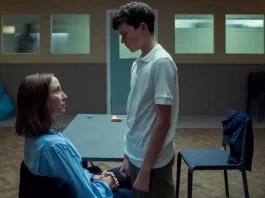Come for the hot characters, stay for the gameplay (and also the hot characters)
One good thing to come out of the pandemic and extended quarantine is the opportunity many of us have had to revisit or explore both old and new hobbies. For me, it was video games, and one in particular has really captured me recently. Hades is a rogue-lite dungeon crawler game developed by Supergiant Games, and it has taken over my life. Playing as Zagreus, the rebellious son of Hades, your task is to fight your way out of the underworld with the help of countless Greek mythological figures. Prior to writing this review, I made a list of reasons why I love this game, and it was long enough to be the review. Here is a fraction of that list.
For those of you unfamiliar with the rogue-lite genre, the player fights through levels, and you restart the game each time you die, albeit with new abilities. In Hades, you move up through the underworld, battling randomized enemies and a few established bosses along the way while obtaining power-ups — known in this game as “boons” — from different Olympian deities who have chosen to sympathize with your plight. The fighting sequences are incredibly smooth and satisfying with flawless animations and sound design that manages to translate even frantic button-mashing into a coherent battle. The progression of difficulty is natural and allows the player to grow accustomed to the system, even if you’ve never played a rogue-lite before, as was the case with me. Each chamber rewards the player once the foes are defeated, either with in-game currency or with a boon to help you on your way. In essence, the further you go, the more powerful you become.
When you die, Zagreus respawns back home in the House of Hades, where he has the chance to talk to different members of his family and household, including such figures as Nyx, the goddess of night, and of course his own disapproving father, Hades. For those of us who enjoy the more relational side of games, every interaction with the members of the House allows you to learn more about them and deepen your relationship with them. It develops the story of the House’s inhabitants and of Zagreus himself while occasionally receiving a keepsake which will affect your abilities back out in the fight. This makes dying its own reward, and it means that even though you start back at the beginning, you never start at square one. Something has always changed or progressed, and it allows the player to get better at the game regardless of how many times they have to fight the same boss.
If you have heard anything about this game before now, you may have heard that all the characters are hot. I am inclined to agree, but you can be the judge of that yourself. The character design is creative and detailed yet compliant with the traditional understanding of such Greek mythological figures. Because there are so many different characters and interactions throughout this game, there are a lot of distinctive personalities and lines of dialogue, every single one of which is voice-acted. Despite this, no matter how many times you talk to the same people, you will never get the same interaction twice. There are literally thousands of unique conversations in this game, and they progress along with your movement through the story and your different relationships. When you encounter that same boss for the 20th time, the conversation will reflect how many times you have fought, the changes that have occurred during that time, and probably some inside joke that has developed from your repeated encounters.
No prior familiarity with Greek mythology is required to enjoy this game, and because Zagreus exists within the stories, he learns about the lore along with the player. At the same time, a Greek mythology enthusiast will find that this game does the subject matter justice. The Olympian gods are presented as heroic but flawed, which is true to their ancient representations. Memorable characters such as Achilles and Orpheus play a role in Zagreus’ development, and the convoluted relationships typical of the Greek pantheon are represented and respected. Finally, Cerberus the three-headed dog is in the game; he sits obediently in the House of Hades, and you can and should pet him every time you see him. If that doesn’t sell you on this game, I don’t know what will.
If I had to sum up Hades in one statement, it would be this: Supergiant Games knew exactly what the Greek mythology nerds would want from a video game, and that is precisely what they have created. The game is visually stunning and mechanically smooth, it allows an enjoyable experience for both experienced and novice gamers, and the story is engaging and immersive. The “just one more” factor is very present in this game, so do yourself a favour and try it out — after finals. Your grades will thank you, and you can give Cerberus as many scratches as you want.



